
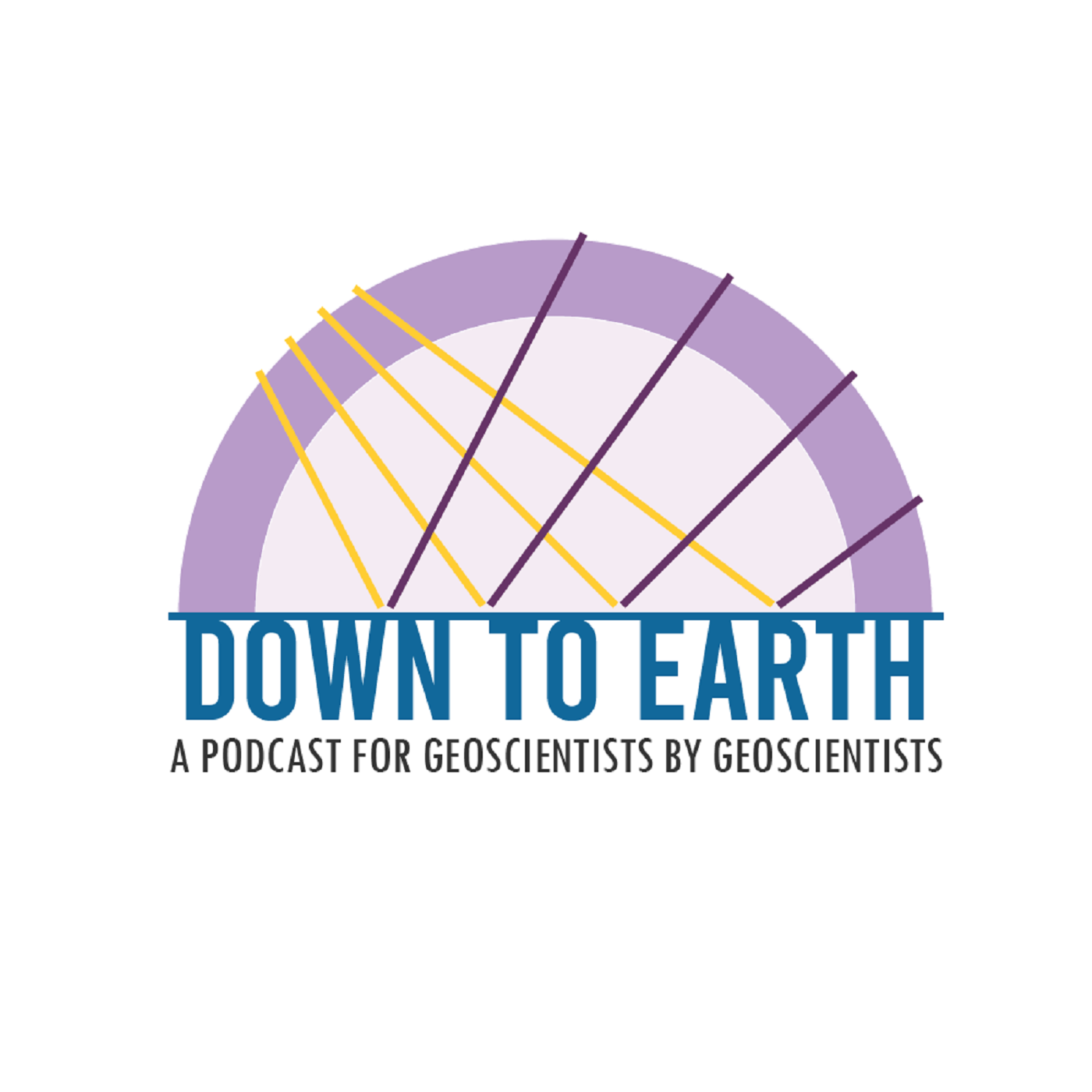
19.5K
Downloads
55
Episodes
Welcome to “Down to Earth”, a 30-minute podcast about innovative geoscience and the incredible people behind it. Each week, we host a different guest to talk about science, careers, and passions. From stories about meeting their idols, to investigating their science superpowers, and all the fascinating research and engineering projects in between, Down to Earth is sure to become your quick and compelling catch-up on the people and the work in geoscience. This podcast is presented by the IEEE Geoscience and Remote Sensing Society.
Episodes
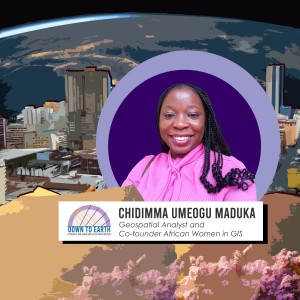
Sunday Nov 20, 2022
S3E07 Down to Earth: Growing the next generation of climate scientists
Sunday Nov 20, 2022
Sunday Nov 20, 2022
While scientists are building new remote sensing networks in Costa Rica, others are merging networks to build capacity across Africa. Through her work as the Co-Founder of African Women in GIS, Geospatial Analyst Chidimma Umeogu Maduka is supporting other women in pursuing geoscience. At the same time, she’s also applying her geospatial knowledge to tackle the socio-economic barriers Nigerians are facing on the climate change front. From helping assess when and where to plant trees as part of Nigeria’s reforestation campaigns, to bringing visibility to the amazing women geoscientists across Africa, Chiddima is all about using remote sensing for empowerment!
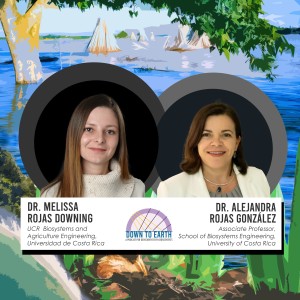
Sunday Nov 06, 2022
S3E06 Down to Earth: Modelling a carbon neutral future through collaboration
Sunday Nov 06, 2022
Sunday Nov 06, 2022
With fires raging, permafrost thawing, urbanization increasing air pollution, and more, staying positive about the future of our planet can be challenging. But as the scientists in our previous episodes have demonstrated, there’s still hope yet. And in Costa Rica, a small country with a big dream of becoming the first carbon neutral country in the world, two researchers are pooling their collective knowledge and experience towards this goal. Dr. Alejandra Rojas González, associate professor at University of Costa Rica, focuses on flood mapping and water resources modeling. Dr. Melissa Rojas-Downing, Guest Lecturer at University of Costa Rica specializes in sustainable agriculture. Together, they hope to build a remote sensing lab in San Jose, which might just become Central America’s leading institution in remote sensing and climate change.
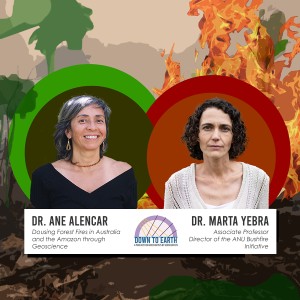
Thursday Oct 20, 2022
Thursday Oct 20, 2022
Similar to Arizona, Australia is no stranger to a hot, dry climate–one that sets a yearly stage for bushfire season. In 2019, Australia experienced one of its worst bushfire seasons to date, with fires consuming swaths of land, causing significant wildlife death, and even burning some of Australia’s remaining rainforest. That same year, on the other side of the Pacific Ocean, the Amazon rainforest experienced a longer dry season than normal. This resulted in a surge in fires that consumed over 17.5 million acres of land. In the face of ongoing global warming, how do we detect and address fire threats to prevent these catastrophes from happening again? In this episode, we speak with two researchers, Dr. Marta Yebra, Senior Lecturer in Environment and Engineering at Australian National University, and Dr. Ane Alencar, Science Director for Institute for Amazonian Environmental Research, to find some answers.
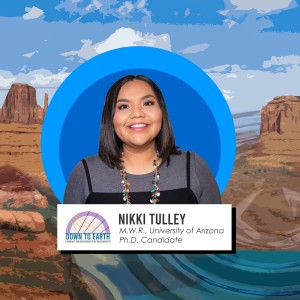
Sunday Oct 09, 2022
S3E04 Down to Earth: Protecting Water Resources Amidst Drought
Sunday Oct 09, 2022
Sunday Oct 09, 2022
While arctic thaw is leading to soggier conditions up north, places like Arizona, USA are experiencing higher rates of drought. Due to a combination of human extractive activities alongside climate change, the Navajo Nation in particular has faced an increasing shortage of freshwater. In this episode, we speak with Ph.D student Nikki Tulley, also a member of the Navajo Nation, about her work using satellite data to study water quality, access, and drought in her home community, Blue Gap.
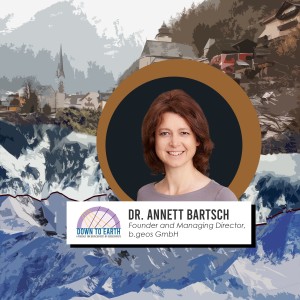
Sunday Sep 25, 2022
Sunday Sep 25, 2022
While human-produced emissions may have decreased during COVID, the levels of methane and carbon dioxide released by permafrost thaw in the Arctic continues unabated. But thawing permafrost doesn’t just impact our atmosphere. It also destabilizes the ground, causing real problems for the 30million+ people living in the permafrost zone. In this episode, we speak with Dr. Annett Bartsch, Founder and Managing Director of b.geos, an Earth Observation consultancy based in Austria. Through her work with ESA’s Climate Change Initiative Permafrost Project, Dr. Bartsch and others have used remote sensing to develop predictions into 2050 about permafrost thaw, which, if used wisely, can shift how communities respond to climate change in the arctic.
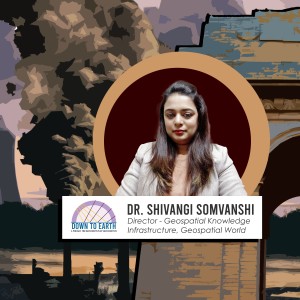
Sunday Sep 11, 2022
Sunday Sep 11, 2022
A major contributor to climate change that often increases with urbanization is air pollution. According to the World Health Organization, air pollution kills around seven million people every year. For us humans, it presents one of the most pressing public health problems in the world, and yet is one of the most neglected. Thankfully, the COVID-19 lockdowns helped spotlight this growing challenge by giving scientists like Dr. Shivangi S. Somvanshi an unprecedented opportunity to study the impact of human activity on air pollution. Her research sheds light on factors that can help reduce air pollution as the world begins to emerge from this pandemic.
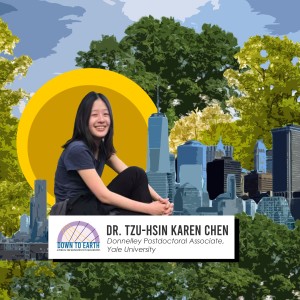
Sunday Aug 28, 2022
Sunday Aug 28, 2022
By 2050, approximately 3 billion of the world’s population will live in cities, making urbanization – the population shift from rural to urban areas – the second-largest megatrend impacting life on our planet. What role does urbanization play in advancing climate change, and how does understanding urbanization trends help us mitigate climate change? In this episode, we speak to Dr. Tzu-Hsin Karen Chen, Postdoctoral Associate at Yale University's School of the Environment and one of the pioneers of the first deep learning method predicting 3-D urban structure information at 30m resolution across time. We discover how this work has allowed researchers to detect and learn from planning policies implemented by cities in the past, and the ways in which we can implement these learnings moving forward, to achieve Sustainable Development Goal 11: Sustainable cities and communities.
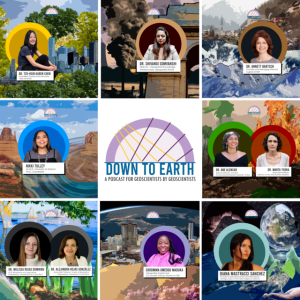
Wednesday Aug 24, 2022
Down To Earth: Season 3 Trailer
Wednesday Aug 24, 2022
Wednesday Aug 24, 2022
Welcome back to “Down to Earth”, a 30-minute podcast about innovative geoscience and the incredible people behind it. In Season 3, we take a deep dive into the ways in which scientists across the globe are helping us understand and address climate change. In the process, we dig into inspirations that sparked their novel scientific approaches, and the ways in which their personal experiences led them to their current work in the first place. Overall, Down to Earth is sure to become your quick and compelling catch-up on the people and the work in geoscience.
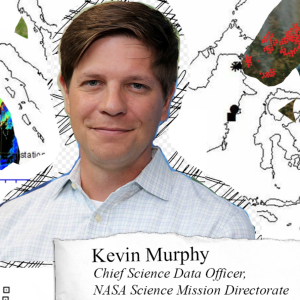
Thursday Aug 04, 2022
S2 (Ep9) Down to Earth : Back to Our Roots: The case for Open Science
Thursday Aug 04, 2022
Thursday Aug 04, 2022
A key component of the scientific method is replicability. But how do scientists replicate research findings unless they have access to the data, methods, and systems used to generate the initial results? Enter, the Open Science Movement -- a push to make science more accessible, not just to other researchers, but to the general public as well. In this Episode, we speak to Dr. Kevin Murphy, Chief Science Data Officer of NASA's Science Mission Directorate, to learn about the Open Science Movement, its opportunities, and its challenges!
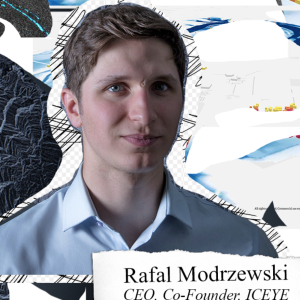
Wednesday Jul 06, 2022
S2 (Ep8) Down to Earth: Looking to the stars for “New Space”
Wednesday Jul 06, 2022
Wednesday Jul 06, 2022
NewSpace is a term that has received a lot of attention recently, particularly with the launch of missions such as SpaceX. However, the term actually represents a movement that is less about billionaires and more about innovations to make space a more accessible frontier. In this episode, we speak with Rafal Modrzewski, CEO and Co-Founder of the microsatellite company, ICEYE, to demystify NewSpace and learn how companies like his are quietly advancing the space sector.